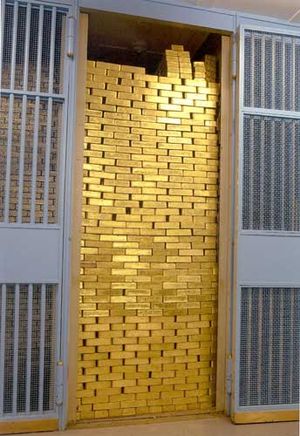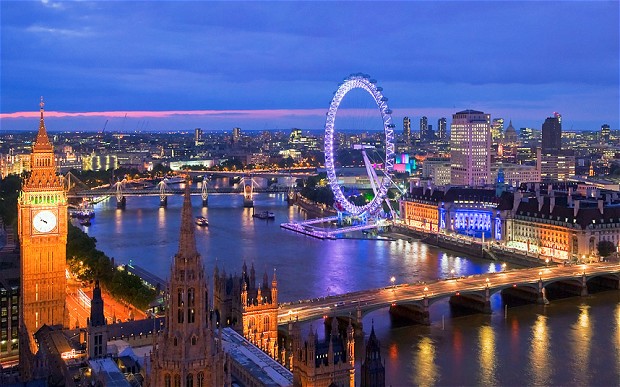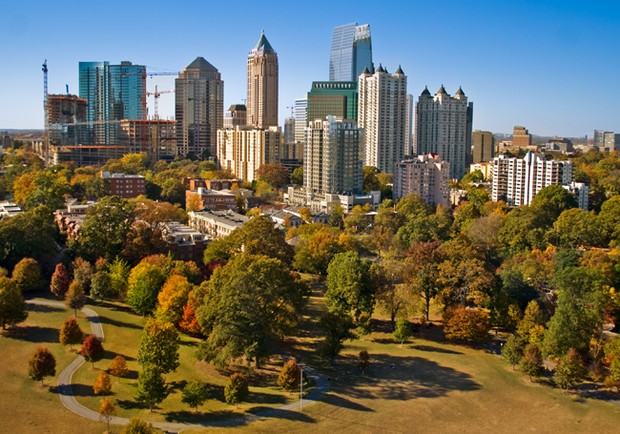472: Inflation or Deflation - How This Will Impact Property Investors
05-27-2013
PropertyInvesting.net team
Inflation or Deflation: There seems to be two camps of economists the inflationists that expect and/or claim rampant inflation, and the deflationists that expect and/or claim rampant deflation. This special report tries to address where inflation or deflation is likely and forecast the most likely outcome for the next few years. This should help frame property investment decisions - helping to improve returns.
Helps Rich: Firstly, general inflation normally helps the super-rich and top 5% net worth of populations because it:
-
Boosts physical asset prices like property, gold, silver, oil
-
Reduces or rapidly destroys debt (inflation adjusted - note that destruction of cash savings has little impact on super-rich as they normally proportionally hold very little in currency in banks
Hinders Poor: Low inflation helps the average or poor people because it keeps a lid on energy, food and rental prices. Often in such an environment, wage inflation outstrips actual inflation leading to higher disposable income for the less we off 80% of the population. This occurred between 1995 and 2005 in the UK albeit much of this was due to debt-borrowing based expansion effect.
Deflation Outcomes: Deflation hurts the wealthy with large debts since the debt can actually increase in inflation adjusted terms over time during deflation. This is widely considered by the upper elite decision makers as disastrous deflation penalised big risk takers and investors that leverage up on debt. It is particularly disastrous to property owners with large debts. This is actually most property investors, particularly the ones using leverage/debt that are looking to rapidly expand their portfolios.
Hedging: What we will try and avoid in this special report is anything particularly judgemental about the rights and wrongs of what policy makers do to either encourage inflation or discourage deflation. We will try to describe what we think will happen in the UK and USA in the next few years so you can position your portfolio to seize on any opportunities whilst hedging and decreasing your risks.
One thing we firmly believe is its not going to be a stable and easy ride you may think things are stabilizing somewhat but we think big troubles are just around the corner.
Firstly we think there are both big inflationary and big deflationary forces acting at this time. After the US housing crash in 2007 and financial crash of 2008 a huge de-leveraging process started. But rather than let this process play itself out, governments all around the world stepped in with regulation, increases in tax and printing of currency to prop the whole system up. This has led to inefficiencies, zombie banks and slow reform of poorly performing private sector businesses, plus an ever increasingly expanding public sector as aging populations require more services and proportionally less numbers of productive people contribute to economies.
aging populations require more services and proportionally less numbers of productive people contribute to economies.
The deflationary forces acted as private sector companies and individuals tried to deleverage away from their colossal debt and property prices dropped sharply from 2008 to early 2012.
Trillions of Printing: The Bank of England and the US Fed stepped in print trillions of their currencies to prop everything back up. This money has been hoarded by banks to redress their failed balance sheets. Little is being lent to businesses or individuals partly because people dont want to take any lending risk with this currency, and partly because demand is so weak for this debt-lending. The banks instead prefer to speculate - trying to achieve short-term gains in the stock market or invest in government bonds to help their profits. Meanwhile the large private sector companies are using some of the ultra-cheap borrowed money to buy back their own shares, which then inflates their share prices, so they can then claim their companies are performing well this can also help with justifying their bonuses. Very little of the floods of cheap currency ever make it to the common person. Instead, the cheap dollars and pounds are likely used by banking and private elites to invest in commodities, stocks and shares (short term) which then drive up energy and stock prices this then increases inflation.
Currency Hoarding: So we have a bizarre situation of either intended or unintended consequences whereby the governments print pounds and dollars that are used by upper elites to hoard and make high returns on their investment that then drives prices higher for the average individual.
Distorted Inflation Numbers: The government use distorted inflation numbers (e.g. using substitution, basket changes, technology subtractions etc.) to claim actual inflation is far lower than it actually is. Real inflation is almost double the advertised inflation (refer to www.ShadowStats.com for reference). In the UK, because private sector wages are rising at only 1.4% and inflation rather than being 2.8% is actually more like 5.2%, people's actual disposable wages or incomes are declining by about 3.8% a year this has been happening since 2008. Its a way of re-dressing productivity, re-balancing the economy and making sure the country does not go bankrupt. Despite real income levels dropping for five years, the deficit still runs are 7% and borrowing is about 90% of GDP in the UK dangerously high. One day, something drastic will happen likely Sterling will decline causing rapidly escalating inflation, but for now, we have been through a five year depression no doubt in our minds. The only area that has escaped this is of course London and SE England. This is where the top 5% net worth individuals live which goes back to our previous point that inflation helps the rich. Of course in London and to a lesser extent SE England this rebalancing and inflation has helped everyone with large property portfolios and debt. We have been advising our website visitors to invest in London property for the last nine years it certainly looks the most likely area to rise further at this time.
So for clarity, lets list the inflationary (prices rising) and deflationary (deleveraging) pressures:
<!--[if !supportLists]-->· <!--[endif]-->Inflation: Oil, fuel, food, tax, education (fees), services charges, water, electricity, rental prices, artwork, wine, prime property (London/SE England)
<!--[if !supportLists]-->· <!--[endif]-->Deflation: Computers, cars, borrowing costs, value of second hard goods, wages (mid-low end), low end property (North, Midlands, most of Scotland, Ireland)
The inflation is being manipulated higher to stave off deflation by waves of printed currency with unofficial national currency wars enacted globally.
Two Forces: These huge forces are acting against each other it looks stable but its not because the forces are building as:
More money is printed
More debt is created
Interest rates are manipulated lower
Taxes are increased
Unemployment stays high
Inflation refuses to come down
Currency Decline: Eventually what will happen to the so called (close to) AAA rated developed nations like the UK and USA is their currencies will decline in value sharply. Then this will exert huge inflationary forces or price increases - within their economies. Once inflation starts central banks will no longer be able to increase interest rates because this would bankrupt private business, private individuals and themselves the public sector and private sector banks - because of the colossal debt mountains. There will be no option but to let inflation run away at which time the **it will hit the fan and inflation will run rampant as a tidal wave or tsunami of currency is unleashed from banks and the super-rich to try and snap up physical assets as quickly as possible to offload their currency before it loses all its value this process almost always happens at the end of a major currency debasement exercise.
Japan has recently started a gigantic currency printing exercise that has driven down the Yen value by 20% and hence the stock market has risen by 20%. The Japanese now claim growth has started, but you cannot create growth simply by printing currency its not that simple. The stock market crashed 6% a few days ago in response to doubts about how the Japanese economy will fare. Longer term, Japan has some very serious problems  an aging and very elderly population, slow reform, zombie banks, tsunami hit coastline, massive government debts of 190% of GDP, competition from Chinese manufacturing, closed down nuclear power plants, gigantic and increasing oil and gas import bills, no oil/gas reserves and slowing innovation. After this bout of currency printing fails, we predict the Japanese economy will slide downwards into a deep depression some time towards the end of this decade or sooner.
an aging and very elderly population, slow reform, zombie banks, tsunami hit coastline, massive government debts of 190% of GDP, competition from Chinese manufacturing, closed down nuclear power plants, gigantic and increasing oil and gas import bills, no oil/gas reserves and slowing innovation. After this bout of currency printing fails, we predict the Japanese economy will slide downwards into a deep depression some time towards the end of this decade or sooner.
France is on a similar downward trajectory. Frankly this was always going to happen once these particular hard-line socialists got into power. Putting taxes for the rich up to 75% is not a recipe for economic growth as expected business people have been leaving in droves. Lack of reform, 35 hour working weeks, August holidays, high taxes, regulations and closer European integration are all leading to recession and this one will continue until the socialists are ejected. The socialist experiment had all the hallmarks of a disaster waiting to happen and the French government have delivered so far.
UK in Comparison: With these declining countries as a back-drop, one can understand why foreign investors (French, Japanese, Middle Eastern, even US) have been snapping up London prime properties because the UK is considered by many as the best of a bad lot. At least the government is trying to do something about the debt and spending, albeit its probably too little and not fast enough. This has led to record low interest rates as confidence in the UK economy marginally improves.
Property Investment: Being a property investor, you are probably asking yourself what does this mean for my property portfolio? Well, after an extended period of ultra-low interest rates and expanding house prices, the currency will decline, inflation take hold, property prices could rise a bit further but then there are three scenarios:
-
Least likely: Interest rates stay low because central banks never manage to get inflation to rise despite massive currency printing and ultra-low interest rates - deflation sets in with or without property prices declining (15% chance)
-
Possible: Interest rates rise sharply to kill off the inflation (without currency printing) leading to people with debt struggling and house prices crashing back down again (30% ch
 ange)
ange) -
Most Likely: Interest rates hardly rise and inflation runs rampant (possibly even with continued currency printing) leading to sky-rocketing house prices a tsunami of currency hits the streets leading to prime real estate prices in particular skyrocketing particularly in London where international money arrives (55% chance)
Too Late to Wean Off Cheap Currency: Our view is that it is now too late to take the punch bowl of ultra-low interest rates and printed currency away. Despite these two measures that have destroyed savers, unemployment remain very high, productivity has not improved, taxes have risen and food-energy-rental prices have risen far higher than wage inflation. Too much bad debt remains on companies, public sector and private individuals books and its an accident waiting to happen, unless they have a period of 2-4 years of rampant inflation to destroy this debt after a currency value decline.
Stress Test for Property Investors: Property investors should really build in a scenario that Bank of England interest rates rise from say 0.5% or 5.5% and mortgage rates from 4% to 9% for three years and be able to pay these rates for this extended period as a stress test. This may need to involved selling some liquid assets, but you should assume these assets have dropped sharply in value to be realistic since during a panic-crisis - you may only achieve fire-sale type prices.
During a crisis, it may also be that tenants get into financial trouble which might come the direction of landlords, so this also needs to be considered.
At the moment, with a housing shortage-crisis, reasonable employment levels, rising rents and rising house prices in most parts of the UK particularly in London and the SE things appear rather rosy. But you really need to consider what happens when the unstable period starts.
London Property Pressures: As more overseas countries slip into crises (e.g.  Syria, Greece, Spain, Yemen, Iran, Iraq, Egypt, many African countries) more of the elite and educated people from these countries will flee and come to London to start a new life. They will drive up rental demand and increase pressures on housing. Rents will rise further partly because the city is building absolutely no affordable housing. The old properties being built are >£500,000 apartments. The cosmopolitan mix of families living in London also tend to have large families helping Londons population increase by 800,000 in the last 10 years with a projected increase of another 800,000 in the next ten years about 1% a year. This population increase is fast and furious especially when you consider no new properties below £250,000 are being built. Property prices really look likely to rise further and shortages increase. Primary schools are full and the transport system is full - London really is getting very crowded - anyone travelling around central London will notice compared with ten years ago.
Syria, Greece, Spain, Yemen, Iran, Iraq, Egypt, many African countries) more of the elite and educated people from these countries will flee and come to London to start a new life. They will drive up rental demand and increase pressures on housing. Rents will rise further partly because the city is building absolutely no affordable housing. The old properties being built are >£500,000 apartments. The cosmopolitan mix of families living in London also tend to have large families helping Londons population increase by 800,000 in the last 10 years with a projected increase of another 800,000 in the next ten years about 1% a year. This population increase is fast and furious especially when you consider no new properties below £250,000 are being built. Property prices really look likely to rise further and shortages increase. Primary schools are full and the transport system is full - London really is getting very crowded - anyone travelling around central London will notice compared with ten years ago.
Propped Up: Government have been printing currency to prop the stock markets and property prices up since 2008 this will eventually trigger a crisis and a sharp drop in growth. It could be triggered by a stock market crash, it could be a big currency decline or it could be the bond market bubble going pop. Something will happen in the next year or so to trigger a panic.
At this time, gold prices, which we believe has just double bottomed at $1350/ounce, will skyrocket along with silver which currently sits at $22.5/ounce.
Every time the government print more money, stock prices rise in response as banks and investors use this no-cost money to speculate (or invest) - chasing high returns.
Bond Market Bubble: The UK and USA are able to print money to pay interest rate charges on the debt they owe foreign governments (like China) simply because people believe the currency has a good proven rating. But these rating are way higher than they should be. The demand for  government bonds considered a relatively safe haven is another bubble. Bond rates of about 1.5% are crazy and bond prices are sky high in comparison to the risk of this debt eventually this bubble will pop. When the tsunami of bond currency along with other hoarded currency/cash hits the streets very high inflation (or even hyperinflation) will be the outcome. The bond market looks in our view to be the biggest and most dangerous of all bubbles we have seen in history. When it eventually pops it will cause a severe crisis. Its likely to be the biggest financial and economic meltdown that the US and UK have ever seen. It will make the Great Depression look mild. Simply put, there is absolutely no way the US debt can continually rise in an exponential manner. There is no way the US can ever pay off its $17 Trillion direct debt and $65 Trillion debt liabilities (pensions, education, military). Bond rates of 1.5% will have to rise eventually once the dollar goes into free-fall, then the US will no longer be able to afford its interest rate payments, particularly as every time they print more currency to pay for these, the the dollar will decline further and inflation will rise further.
government bonds considered a relatively safe haven is another bubble. Bond rates of about 1.5% are crazy and bond prices are sky high in comparison to the risk of this debt eventually this bubble will pop. When the tsunami of bond currency along with other hoarded currency/cash hits the streets very high inflation (or even hyperinflation) will be the outcome. The bond market looks in our view to be the biggest and most dangerous of all bubbles we have seen in history. When it eventually pops it will cause a severe crisis. Its likely to be the biggest financial and economic meltdown that the US and UK have ever seen. It will make the Great Depression look mild. Simply put, there is absolutely no way the US debt can continually rise in an exponential manner. There is no way the US can ever pay off its $17 Trillion direct debt and $65 Trillion debt liabilities (pensions, education, military). Bond rates of 1.5% will have to rise eventually once the dollar goes into free-fall, then the US will no longer be able to afford its interest rate payments, particularly as every time they print more currency to pay for these, the the dollar will decline further and inflation will rise further.
Londons Downside: One of the downsides of investing in London property is it is not only heavily exposed to a major financial crisis, but also heavily exposed to a high-tech bubble and stock market bubble. But to counter this threat, one should consider being sceptical that:
-
Bankers always seem to come out on top
-
Any meltdown would lead to huge currency printing inflation and this would help London house prices (not their real value though, just their price, as debt is destroyed by inflation)
-
If London goes pear-shaped, other parts of the UK are likely to do even worse
The world has massive numbers of new millionaires and billionaires they will always be looking for prime London property simply because its such a safe and amazing place to live with excellent education, shopping, tourism, culture, theatre, arts a truly global multi-cultural centre safe for wealthy people. You can therefore hedge against a major financial crisis by buying gold bullion whilst putting risk currency into London property. If a financial crisis hits property prices, its likely gold bullion value will rise albeit its not for certain this would happen.
Gold Still In Bull Market: Despite the mainstream financial press view on gold and silver, we remain bullish on the outlook for the value of gold and silver in dollar or sterling terms, we see it increasing in price and maintaining real value. Its a great store of value against a crisis or inflation. Just some things on the horizon that could lead to far higher gold prices:
-
Middle East regional war (escalation of Syrian conflict or Iran, Iraq etc)
-
Bond market bubble popping
-
High inflation
-
US currency crash (of default)
-
Stock market crash
-
Oil price skyrocketing because of supply side shock
-
Conflict in a major gold mining region
One or more of these is likely in the next 1-2 years.
We hope this special report has helped you frame your investment strategy for property and your overall investment portfolio. If you have any comments or queries, please contact us on enquiries@propertyinvesting.net .

